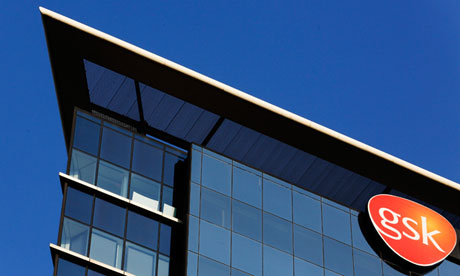
Sir Andrew Witty, chief executive of GlaxoSmithKline, will on Wednesday speak publicly for the first time about the cash and sexual bribery scandal that has led to the arrest of four of the company's senior Chinese executives.
Britain's biggest drug company has admitted some of its executives have broken the law, but has failed to explain who did it, what they did, when they did it or how long the company has known about it.
Here are eight questions that Witty – who was paid £3.9m last year– should answer when he speaks to the media on a conference call on Wednesday.
What have GSK staff actually done?
The Chinese authorities have accused GSK of acting like a criminal "godfather", using a network of 700 middlemen and travel agencies to bribe doctors with £320m cash and sexual favours in return for prescribing GSK drugs.
Gao Feng, head of China's fraud unit, said: "In order to win the favour of GSK, some travel agencies don't just offer money to their [clients], but also sexual bribes."
GSK has admitted only that "certain senior executives who know our systems well appear to have acted outside of our processes and controls which breaches Chinese law". But it has refused to explain exactly what they did or how the alleged bribery worked, despite one of the detained executives admitting to the charges on Chinese state television.
How long have GSK China executives been allegedly breaking the law?
Gao said the police have evidence that bribery has been a "core part" of GSK China's business model since 2007.
GSK said it was "deeply concerned and disappointed" by the allegations, but it has refused to say how long the alleged bribery has been going on.
How much did GSK pay out in bribes? Did this inflate the price of GSK's drugs to patients?
Gao claims GSK spent 3bn yuan (£320m) on bribes. GSK has refused to comment.
One of the arrested executives, Liang Hong, told Chinese state TV that it raised prices Chinese consumers pay for GSK's drugs by up to 30%.
Abbas Hussain, the company's head of emerging markets who was dispatched to Shanghai to oversee the crisis, has promised it will cut the price of its drugs in China.
When did GSK first become aware of these allegations and why did Witty not address accusations of wrongdoing in China earlier?
The Chinese authorities announced the charges and arrested the four GSK executives on 15 July – this was just a week after the company said a four-month internal investigation found "no evidence of corruption or bribery in our China business".
That internal investigation was prompted by a whistleblower who wrote to GSK's board this year alleging that Chinese sales staff had been engaged in the "widespread bribery of doctors to prescribe drugs".
GSK's operations in China have long been plagued by allegations of bribery and corruption. Last year, GSK sacked 56 employees in China for violating its rules, out of a worldwide total of 312 dismissals.
The New York Times claims it has seen an internal audit showing GSK was warned about serious problems in its Chinese research and development facilities as early as November 2011. The report includes a claim that GSK failed to release the results of a drug trial on mice when it was already testing the drug on humans.
How far up the corporate food chain did the corruption reach?
GSK has refused to say how many of its executives appear to have breached Chinese laws, or name any individuals it suspects. Sources close to the company suggest the allegations are restricted to the four Chinese executives detained by the police.
However, the Chinese police are preventing GSK China's British finance director Steve Nechelput from leaving the country, and want Mark Reilly, the British boss of GSK China, to return to Shanghai.
GSK has refused to comment on whether Nechelput or Reilly were involved or aware of the bribery allegations. The company has also refused to say if or when Reilly will return to China.
What will Witty do to clean up GSK's Chinese operations?
Hussain said GSK is taking the charges "extremely seriously" and will take "all necessary actions to … root out corruption wherever it exists", but the company has not so far given any details of specific measures it will take.
What information has GSK passed to the Serious Fraud Office?
GSK said it is regularly briefing the SFO, but has not said what information it has passed on.
Can Witty assure shareholders that staff in other countries are not bribing doctors?
Last year GSK paid a $3bn (£1.9bn) fine in the US to settle claims that it tricked and bribed doctors into prescribing dangerous antidepressants to children. After the settlement Witty vowed that a company-wide overhaul would prevent a repeat of the scandal.
Follow the Guardian's live blog of Witty's conference call with the media from noon on Wednesday at www.guardian.co.uk/business
http://www.guardian.co.uk/business/2013/jul/24/gsk-china-crisis-questions?
No comments:
Post a Comment